Brief Overview about Kekal
Formed in August 1995 in Jakarta, Indonesia, Kekal entered the local scene with fresh ideas combining straightforward extreme metal with a punk-influenced attitude. Throughout the first 5 years, they developed their own music style by incorporating many diverse elements from outside metal, but not until they released "The Painful Experience" (2001), their 3rd album, which marked as a starting point for the band to move deeper into the progressive territory and started to make further explorations with their music. According to AllMusic, Kekal was one of the first heavy metal bands from Indonesia to make international inroads, and according to sociologist of heavy metal, Keith Kahn-Harris, was one of the few extreme metal bands from Southeast Asia to ever make more than a minimal impression on the global scene.
In 2003, they released their 'breakthrough' 4th album, "1000 Thoughts of Violence." Dubbed as Kekal's most successful album to date in terms of sales and media reception, the band started to gain attention beyond the Asian region due to the uniqueness of its music: combining stylistic elements of jazz-fusion, progressive rock, psychedelic, dub, trip-hop, experimental electronic and ambient music, and blended together into their own distinct style known as 'Kekal style'. Praised by critics and enthusiasts alike, they started to cite Kekal among the world's most important 'avant-garde metal' bands, and they toured Europe for the first time in 2004 (as the first Indonesian band to tour Europe) and played some shows in The Netherlands, Germany and Sweden. In 2005, they released their equally impressive 5th album "Acidity" and have since strengthened and validated their position within the international underground metal scene.

Kekal decided to move forward and to come deep into musical territories yet unexplored by the band. Throughout the year 2006, Kekal was busy recording and shaping their yet another groundbreaking, 6th album entitled "The Habit of Fire", an ambitious 70-minute epic concept album which marked a new statement for the band to push the envelope even harder and further. "The Habit of Fire" was released in 2007 by 2 record labels in North America and Europe and gained wider distribution and promotional coverage, making it to become another successful album alongside "1000 Thoughts of Violence".
Never poised to follow the success of "The Habit of Fire", Kekal released a dark, low-key, modest 7th album "Audible Minority" in December 2008, dedicated only to the truest of their loyal enthusiasts.
On August 12, 2009, Kekal shed itself from all the human members. It marked the start of a new era as a memberless band, with former members and other musicians voluntarily contributing together in collaboration to make new albums up to this date. It has since released six more albums, including their 10th album "Multilateral" in July 2015, 11th album "Deeper Underground" in May 2018, 12th album "Quantum Resolution" in August 2020, and their latest — 13th album "Envisaged" in July 2022, all without the presence of official band members. All three former key members have left the band for over a decade now, but they decided to continue giving their contribution in music, artwork and audio production for Kekal's future albums.
Kekal has achieved something that will be renowned for its own way of displaying human expressions without setting the limits. For Kekal, musical exploration is considered as one important method of self-actualization. Even when people tag the band as progressive metal/rock, avant-garde metal, experimental rock, electronic, or just plain "weird", none of these labeling could really describe the essence of Kekal's music.

Kekal 2D Representative (named "Kekal")
Since the departure of all band members in 2009, Kekal struggled to find a representative who would act as a "band photo", replacing 3 former members.
Former Kekal bassist-turned-coffee-enthusiast Azhar Levi Sianturi then constructed a 2D illustration, and after few hundred cups of premium coffee he came out with a thought-provoking piece of art representing Kekal as a band.
This 2D representative is not a traditional "band mascot" but purely depicts Kekal as an active entity and energy beyond the limitations of the presence of human members.
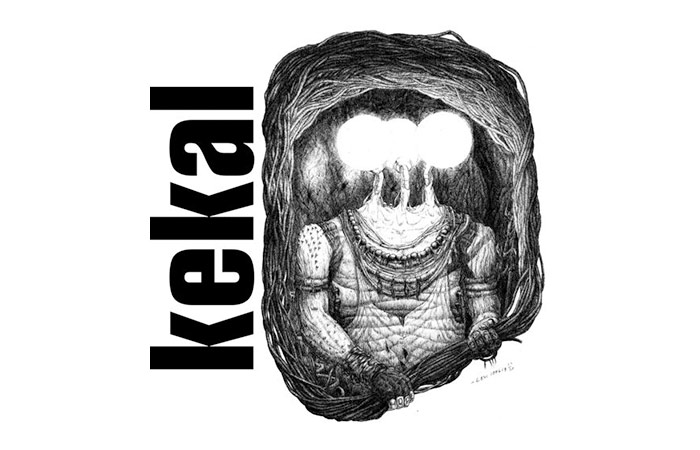
More about Kekal
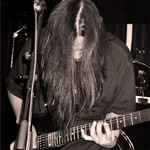
Jeff Arwadi
[official member from 1996 - 2009]Jeff officially joined Kekal in 1996 when the band started to record their first official demo tape, which was recorded in his bedroom only through a very modest Fostex X-28H 4-track analog cassette recorder. From there, Jeff began to produce all Kekal albums as well as becoming the main composer, lyricist and vocalist for Kekal. Jeff plays guitars, bass, synthesizers and sometimes drums.
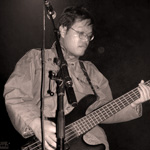
Azhar Levi Sianturi
[official member from 1996 - 2009]Levi joined Kekal in June 1996 as a bass player and occasional vocalist, and stayed in the band until March 2009. He is also known as an illustrator who has his hand-drawn artwork displayed in many Kekal album covers, especially in later albums. Levi is also a songwriter who wrote both music and lyrics for Kekal, and he is also known as a coffee enthusiast.
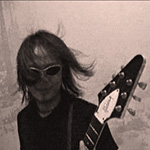
Leo Setiawan
[official member from 1996 - 2009]Leo joined Kekal as a lead guitarist in 1996. He is known as a 'riff-guy' and plays unique-style guitar solos and melodies, and has contributed in the musical development of Kekal. In the early years of the band, he gave Kekal a distinct individual character. He has some cool collection of guitars and known with his brave sound experiments.
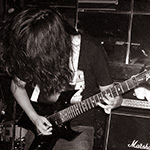
Didi Priyadi
[live guitarist from 2004 - 2005]Didi joined Kekal as a live guitarist in 2004 replacing Leo when Leo was absent while studying in Australia. Didi is an accomplished career musician. He has played guitar since childhood and has played with many bands throughout his adult life. His weapon of choice is guitar, but he is also a terrific pianist, keyboard player and vocalist.
Kekal: Anarchism & DIY Ethic
Since the inception of Kekal in 1995, there has been a noticeable and consistent distinction in Kekal compared to most bands categorized within the metal and heavy music genres: Strict DIY/do-it-yourself ethic (never give ownership of recording masters to any record label ever, self-produce everything from music to artwork & promotional material), non-conformist style of music in regards to established genres, the offer of important albums for free downloads direct to audience (and significantly cheaper price for digital albums), license the music via Creative Commons as opposed to copyrighting it (since 2010), and since 2009 - being a band as an institution without official members, with all works are voluntarily contributive in nature.
The reason is that Kekal practices the philosophy of Anarchism, which translates to non-hierarchical and anti-authoritarian approach to self-governing/self-managing. The key is voluntary contribution and free association. Voluntary contribution has been utilized in Kekal since the beginning of the band as there was never any assignment of roles on who does what during recording. All band members (at that time) chose to play any instrument and/or vocals as they felt fit, in order to achieve better musical output. This extends more during the present, zero-member status of the band, in which anonymity is being put at the forefront, and Kekal becomes the purer channel of expression.
Influential Albums
There are over 150 albums that have influenced both Kekal as a band and the musicians involved, from the early formation until now. These albums are posted on Kekal Facebook page.